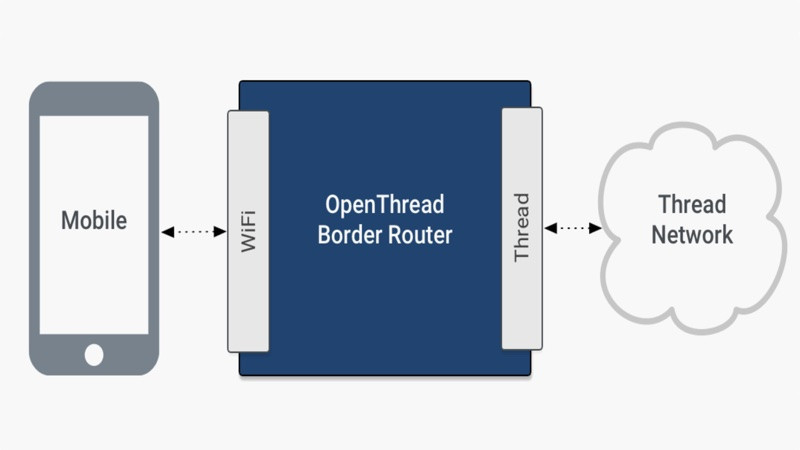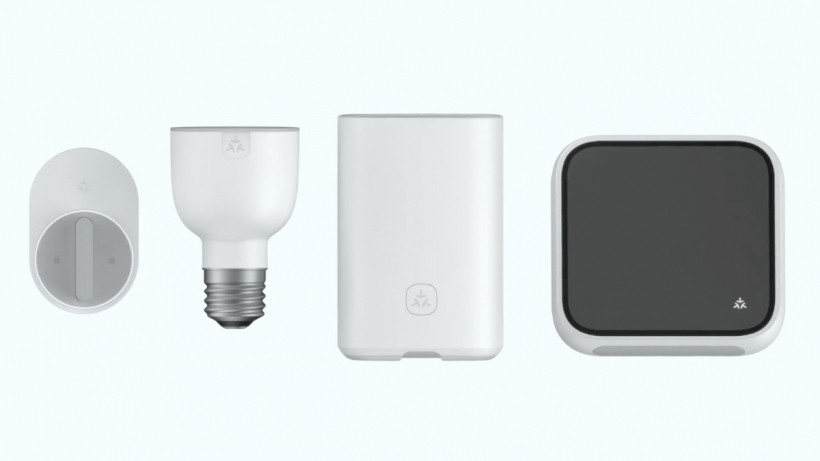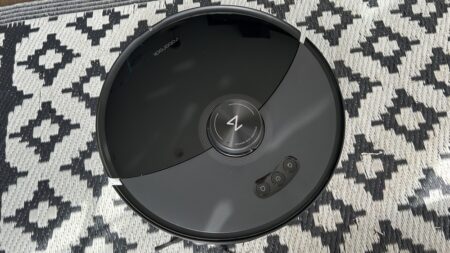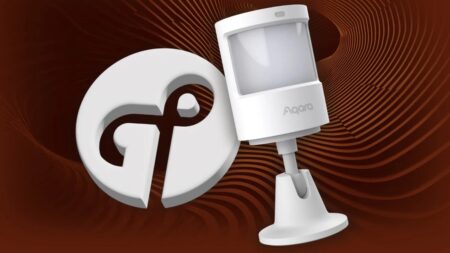Gimmy Chu gives us the latest on all things Thread and Matter
Back in November 2020, we spoke with Nanoleaf CEO Gimmy Chu on the eve of his company launching the first Thread-enabled smart lights, with the Essentials range.
At the time Chu was keen to point out how Thread connectivity would be a major engine for the Matter smart home initiative, which back then was still referred to as Project Chip.
“What pushes the ecosystems ahead is, in the long run, is to uncomplicate these things as much as possible and make it in a natural for people to use in the house,” he stated at the time.
Related: Google Home boss on Matter smart home delays
However, we’re all still waiting for Matter to happen. In August last year we were told by The Connectivity Standards Alliance (the guys steering the Matter ship) that a 2021 launch had been shelved, and that consumers would have to wait until 2022 to get Matter smart home devices in their houses.
Nanoleaf is still pushing hard in the Matter space ahead of the big launch – recently enabling Thread Border routers for third-party brands from a number of its products – and the word from the top is that it’s all steam ahead, albeit with some hiccups expected along the way.
“The middle of this year is when it’s scheduled to be finalized, so I think it’s pretty realistic that it’s going to launch this year,” Chu told us when we caught up with him earlier this month.
“We have products that were tied to last year’s launch of Matter and we delayed those products because we didn’t want to enable Matter through an update; we wanted to just work directly out of the factory.
“As soon as these products come out, they’re going to work directly on a local basis directly with Apple, Google and Amazon, and anyone else that supports the Matter platform.
“That in itself is a major improvement from what it is today, which is it’s kind of a hodgepodge of different standards.”

As mentioned Nanoleaf has already got the ball rolling by being a major enabler for Thread networks, even before they get wrapped up inside the Matter banner.
But that’s not been plain sailing. I can speak from personal experience – and forums back up my findings – that the Thread network capabilities inside of the Nanoleaf system are a bit clunky and buggy right now.
That’s to be expected, explains Chu, who states that early adopters will be on board in essentially being guinea pigs for these new connectivity methods.
“I think when something first comes out, there’s going to be issues that need to be ironed out,” he explained. “But overall, I think it’s still going to be a massive improvement.
“It’s something that we as a company are aware of, and we’re constantly improving. And, you know, from my experience, I think the early adopters will be okay with actually trying to figure out how to how to resolve all these problems and, and over time, that will continue to improve to the point where the mid and late adopters will be like, ‘Wow, this actually works great.’
“One of the things with Thread border routers, for example, the vision is for it is to be shared across all the different platforms, meaning any product could connect to any border router, and it’ll all work the same way. The challenge is because the Matter spec is still being written, that keeps evolving and changing.”
“And also, companies like Google and Apple still haven’t decided on how they’re actually going to share those Thread credentials
“So a lot of the early adopters are going to face some of these early adoption issues. But our vision is that we need to skate to where the puck is headed. We want to make sure that we’re designing products and technology that doesn’t exist, we want to be pushing the boundaries on on tech, as opposed to creating products that already exist on the market.”
And it’s in this area that Chu is most excited for the Matter standard, explaining that he sees it as a platform that will enabled companies to build devices beyond what we already see in the smart home space.
“The underlying standard is not actually the exciting part, right? It’s really meant to be the foundation,” he explained.
“With the existing technologies today, it’s like building something on sand; it is just kind of broken and it’s just not a solid foundation.
“Matter is like the rock to create a really solid foundation to build on. But really, the rock isn’t the main attraction. Matter is going to level the playing field to create a solid foundation for companies like us, and companies like Google and Apple to build on.
“But who can build the most exciting thing on top of the rock? I think that’s that’s really the exciting part and why Matter actually matters.”





